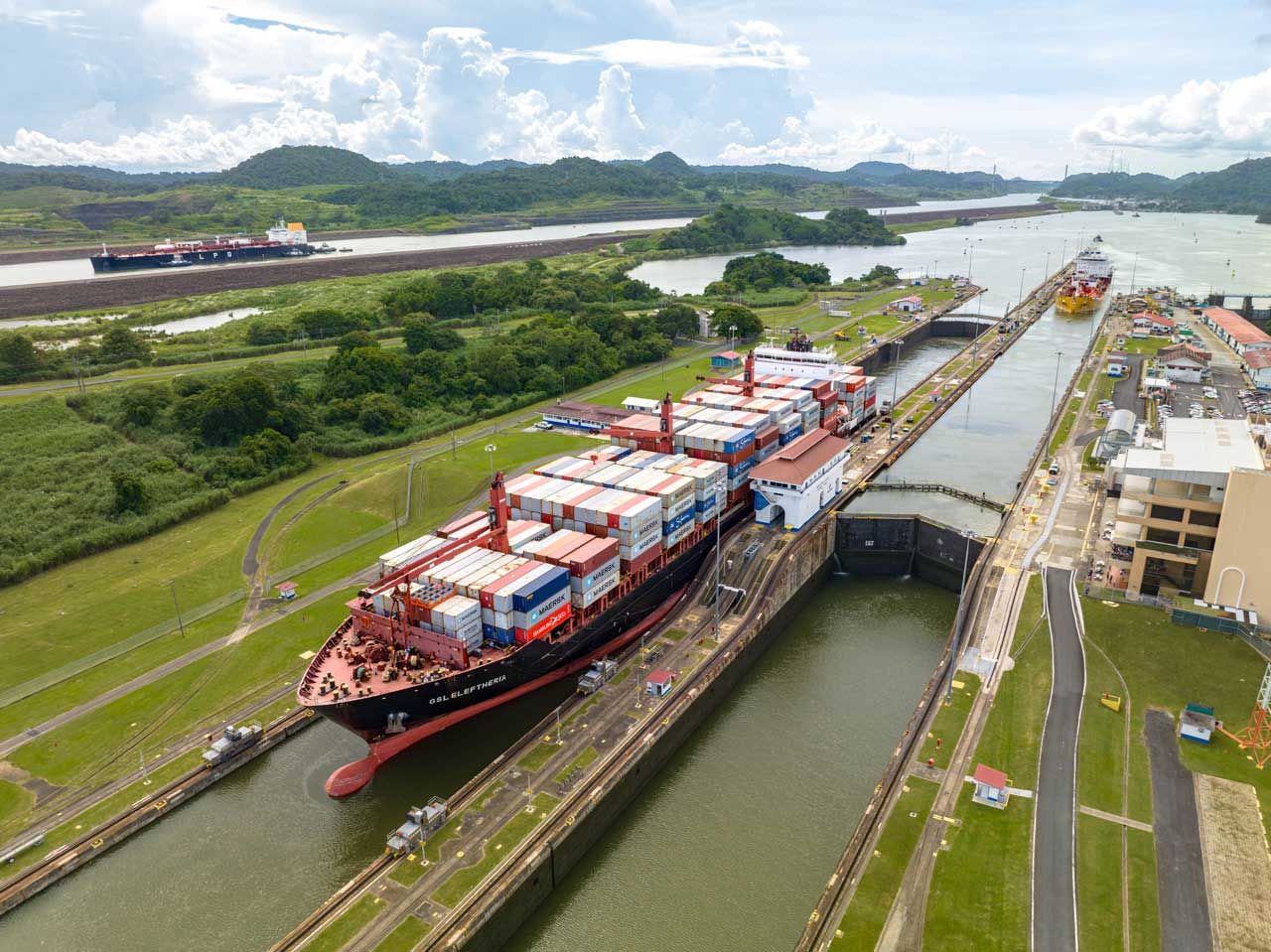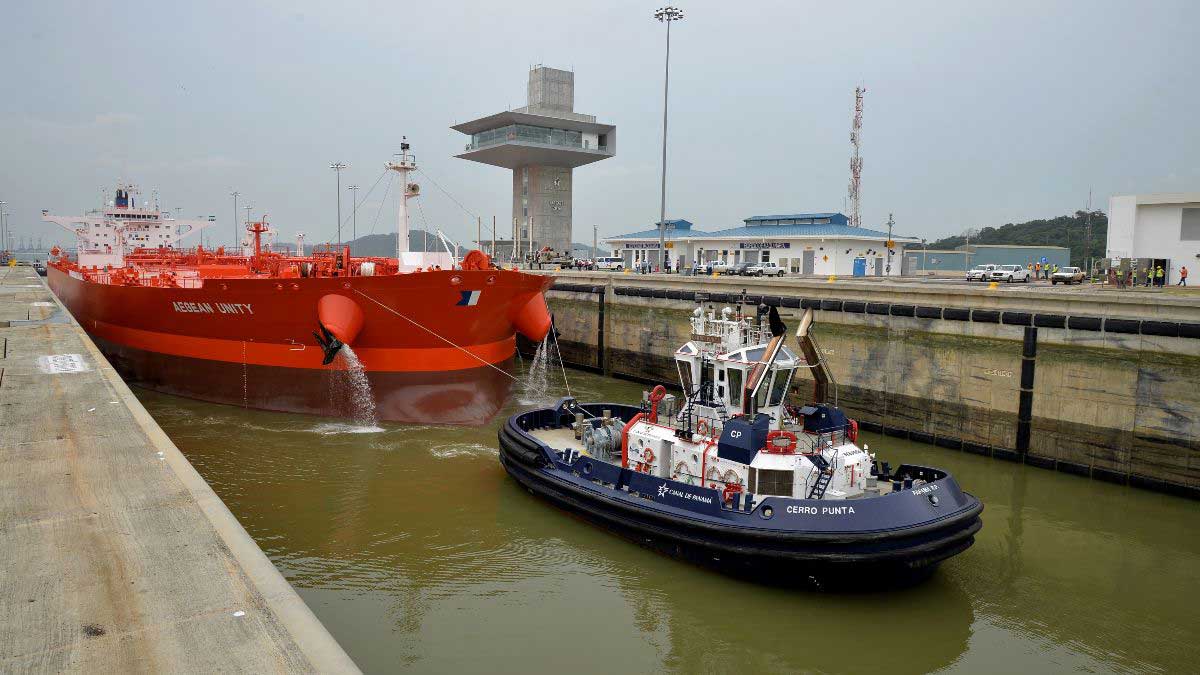NEW PROCESS AND PROCEDURE WILL HELP TO MAKE CANAL MORE SAFE AND HELP TO PROTECT THE ENVIRONMENT
PANAMA CITY, Panama, January 14, 2005 – The Panama Canal Authority (ACP) is constantly working to enhance the Canal’s safety and reliability, which includes emergency preparedness. On January 1, 2005, the ACP implemented new regulations to help plan for and mitigate the effect of oil spills. Called the Panama Canal Shipboard Oil Pollution Emergency Plan (PCSOPEP), its goal is to provide for the expeditious and effective reaction to an oil spill and reduce its possible impact to the Canal and the local environment.
All vessels with a 400 metric ton or more of oil carrying capacity, as fuel and/or cargo, are required to submit a PCSOPEP at least 96 hours prior to arriving in Canal Waters. These vessels will be subject to a per transit fee to help fund the PCSOPEP program and will be based on the vessel’s tier classification and hull construction of tankers (double or single hull). However, vessels in ballast will only be assessed a fee corresponding to their tier classification.
“The ACP is committed to preparation and training for an unfortunate incident that may occur in the Canal. By taking these steps, we ensure that should an accident occur, we will be ready and our response will be swift and thorough,” said Jorge Quijano, Maritime Operations Director.
Each PCSOPEP will be developed by organizations or individuals experienced in pollution prevention and response, must be submitted at least 96 hours prior to arrival at Canal waters via e-mail or through regular postal mail, and should include the following information, as a minimum:
Oil pollution prevention measures for Panama Canal waters
Spill notification procedures in a prioritized sequence
Spill response procedures
Crew training program for the reaction to shipboard and shore spill incidents
Record of PCSOPEP notification exercises
Identification of the Authorized Person and telephone and facsimile numbers where they can be reached on a 24-hour basis
The vessel activates the PCSOPEP as soon as initial notification is made to the ACP of an actual or probable oil leak. The ACP has established a six-hour response time that includes time for notification and mobilization of personnel, transportation of personnel and resources to the spill location, deployment of resources and time for start-up of operation.
Over the past year, the ACP has been in continuous contact with its customers in the development of the PCSOPEP program, ensuring a sound and opportune implementation.
About the Panama Canal Authority (ACP)
The ACP is the autonomous agency of the Government of Panama in charge of managing, operating and maintaining the Panama Canal. The operation of the ACP is based on its organic law and the regulations approved by its Board of Directors. For more information, please refer to the ACP’s website: http://www.pancanal.com/.
The Authority’s responsibility to the Panamanian people is paramount. The Canal belongs to the people and benefits from the Canal should accrue to as many Panamanians as possible. The Authority will plan its future so that it will continually contribute to the economic development and welfare of the people of Panama.




